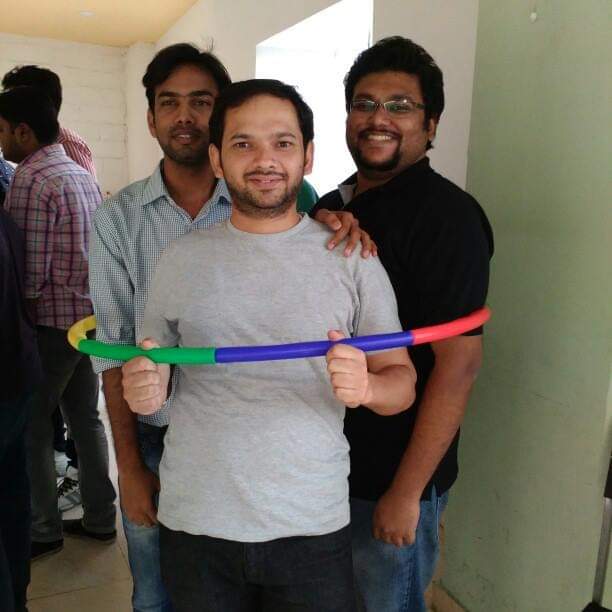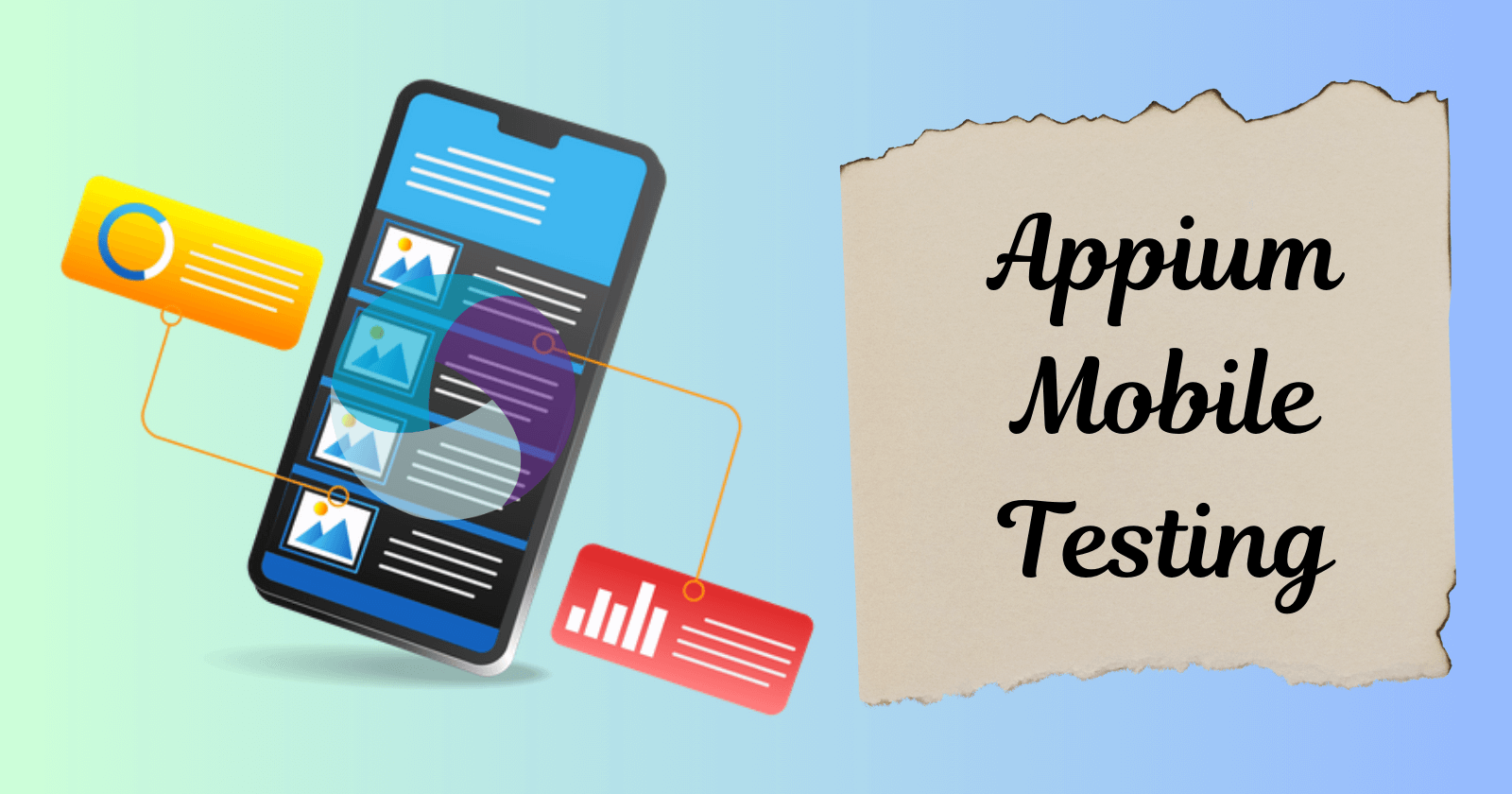Everything You Need to Know About Appium Mobile Testing
 Abhay
Abhay
As smartphone usage soars, the influx of mobile applications brings numerous benefits and heightened development and testing challenges. Manual testing must be improved in today's competitive landscape, making automation essential for swift and reliable results.
Introducing Appium, a widely adopted open-source, cross-platform mobile automation tool. Designed for native, hybrid, and mobile web applications, Appium supports Android and iOS on real devices and simulators/emulators. Its seamless integration with Selenium WebDriver allows it to act as a vital translator for commands, ensuring efficient testing and robust functionality in the rapidly evolving world of mobile applications. Exploring Mobile Automation with Appium
Appium, an open-source framework, empowers testers to evaluate mobile apps and web browsers across diverse devices. It's a top choice for its flexibility, allowing testing in preferred programming languages like Java, Python, PHP, Ruby, or C#. This cross-platform tool unifies testing for Android and iOS, making it user-friendly and eliminating the need for specialized knowledge.
Appium facilitates realistic testing conditions through emulators and simulators, ensuring apps meet client expectations. It covers various app types:
Native Apps: Platform-specific apps for Android, iOS, and Windows.
Hybrid Apps: Combining web browser features with native controls, accessible via devices and URLs.
Web Apps: Accessible through browsers like Chrome and Safari, with in-app options for Android and iOS.
In summary, Appium streamlines mobile testing, offering versatility across applications with ease.
Key Features of Appium
Appium stands out as a versatile and robust framework, allowing developers and testers to seamlessly automate tests across real devices, emulators, and simulators without being bound by platform constraints. Its standout features distinguish it in the realm of automation testing frameworks:
Active Community Support: Appium enjoys strong and dynamic community backing, ensuring consistent improvements and timely updates. The community's dedication enhances the framework's functionality and adaptability across diverse platforms.
Easy Integration: Seamlessly integrates with popular automation frameworks like Selenium, Cucumber, and Robot Framework. This flexibility empowers testers to create and execute scripts in their preferred languages, fostering a customizable testing experience.
Support for Multiple Languages: Appium supports various programming languages, including Java, Python, Ruby, and JavaScript, allowing testers to work with their language of choice. This enhances convenience and usability during testing.
Cross-Platform Support: Offers versatile testing capabilities across Android and iOS without code modification. This compatibility streamlines testing processes, eliminating the need for separate scripts and enhancing overall productivity.
Real Device Testing: Facilitates testing on real devices, providing a more authentic testing environment than emulators or simulators. This feature ensures genuine feedback on application performance, functionality, and usability.
No Source Code Access Required: Designed to operate without accessing the application's source code, Appium enables testing in developmental phases or third-party applications, offering flexibility and efficiency in the testing process.
Advantages of Appium Testing
Cost-Free Accessibility: Appium is a freely available open-source tool, downloadable without cost. It requires no additional device installations and is supported by Sauce Labs and a robust community.
Flexibility Across Programming Languages: Supporting diverse programming languages like Java, Python, PHP, and C#, Appium allows users to choose their preferred language. No app modification or recompilation is necessary.
Selenium Compatibility: Leveraging Selenium WebDriver compatibility, Appium inherits all Selenium features. Users who are familiar with Selenium concepts find Appium intuitive and easy to use.
Cross-Platform Harmony: Appium tests written for one platform can seamlessly run on iOS and Android without code alterations. This cross-platform support enables running multiple tests concurrently on various devices and OS versions.
Record and Playback Functionality: Appium offers a record and playback tool, utilizing inspectors to accelerate testing efforts. It records native app behavior by inspecting the Document Object Model (DOM).
Integration with CI Tools: Appium seamlessly integrates with popular Continuous Integration (CI) tools such as Jenkins and Bamboo. This integration automates test triggering during release cycles, enhancing efficiency in the development pipeline.
Read: Top 14 Automated Mobile Testing Tools and Frameworks
Understanding the Appium Framework Architecture
Appium, a leading automation framework for mobile app testing, comprises three key components:
Appium Client: The Appium Client encompasses automation code scripts crafted in programming languages like Java, Python, PHP, C#, or Ruby. These scripts include configuration details for the mobile device and the app. Testers leverage this scripted code to test cases effectively.
Appium Server: As an HTTP server, the Appium Server accepts client command requests in JSON format. Utilizing the Node.js programming language, the server executes commands on mobile devices. It must be installed before running test scripts, and its primary role is to receive and forward requests, establishing sessions between the Appium Client and the End Device. It connects to platforms like Android, iOS, and Windows.
End Device: The End Device can be a physical device, emulator, or simulator. Connected to the Appium Server, it is the real-time execution environment for test cases.
These three components seamlessly collaborate to enable mobile automation with Appium, facilitating the development of robust applications for end-users. Subsequently, we'll explore how Appium operates with Android and iOS platforms.
How Appium Operates
Understanding Appium's operation requires knowing its prerequisites, including Appium Server, Client Library, Node.js, Java, Android Studio, Eclipse IDE, Apk Info, and Selenium Jar.
Appium, an HTTP server, employs REST API for client interaction, with requests in JSON format and governed by the JSON Wire Protocol. Automation frameworks like XCUI test (iOS) and UI Automator (Android) execute requests on End Devices.
Android:
Appium Client translates commands into REST API requests using libraries and JSON Wire.
Requests are sent to Android, interpreted via bootstrap.jar, and executed through UI Automator.
Results prompt an HTTP response with a status code for the Appium Client.
iOS:
Appium Client converts commands into REST API requests via JSON Wire.
Requests are sent to iOS, interpreted by the WebDriverAgent.app, and executed through the XCUI Test.
The server responds to the Appium Client with an HTTP response containing a status code.
Appium testing seamlessly enhances mobile automation, establishing itself as a robust framework for testing Android and iOS applications.
Conclusion
In meeting the demands for swift and reliable testing across diverse platforms, devices, and versions, Appium's role in mobile testing is indispensable. Widely favored in the industry, Appium stands out for its feasibility, flexibility, and cost-effectiveness, making it a key player in achieving exceptional user experiences within the continuous delivery paradigm.
When paired with the exceptional capabilities of HeadSpin, Appium becomes an even more potent tool for mobile app testing. Leveraging an extensive device inventory, cloud-based testing, and an integrated Appium Inspector, HeadSpin empowers testers to master Appium, enabling efficient and scalable automation testing.
Embrace the advantages of Appium with HeadSpin to attain optimal testing outcomes, ensuring the delivery of high-quality, reliable apps and a seamless test user experience to your users.
Subscribe to my newsletter
Read articles from Abhay directly inside your inbox. Subscribe to the newsletter, and don't miss out.
Written by

Abhay
Abhay
I am a digital marketer with 13+ yrs. experience. I have written so many blogs and also have sound knowledge in software testing.